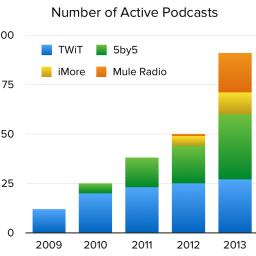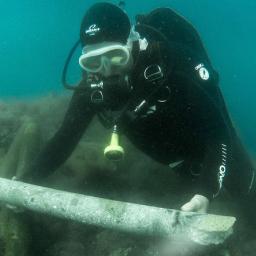When I proposed a Linux Distro every Friday, I'd hoped to mostly avoid distros that are simply "Ubuntu plus a theme and/or windowmanager choice" but this week it's impossible. World, meet
Ubuntu Linux Satanic Edition, the most appropriate distro for a Halloween Friday.
Linux for the Damned is their subtitle, and if you're planning on going off to hell after this and listening to all sorts of awesome death metal in the afterlife, this is probably for you.
So what is it? It's Ubuntu, with a
special selection of wallpapers, and a pre-configured
Eternity Screensaver set to play the "Eternal Damnation" ray-traced screensaver when it kicks in. I looked around a bit to figure out if there's anything to Ubuntu Satanic other than the screensaver and wallpapers and found something unique: this distro also comes preconfigured with a ton of metal music! I think preloading a soundtrack on a distro might be unique; at least, I am not aware of any other distros that take this approach. Install U/S and
you too can enjoy dozens of tunes by the likes of Severed Fifth, Blueprint for Disaster, Music for the Damned, Frontside, Taste of Hell, Holy Pain, and ScapeGoat. To my surprise, most of the artists are French and all of it is licensed freely via Jamendo.
All of this supports U/S's motto: "
Ubuntu Satanic Edition is dedicated to combining the best software with the heaviest music." U/S connects you to Ubuntu's own repos, so no worries about the best software consisting of a reduced subset. To those of you who are offended by the presence of a Satanic distro, no worries: there are Ubuntu
Muslim Editions and
Christian editions as well, all using the same repos - just think about that for a second.
Happy Halloween, Pipedotters! Next time, we'll go back to distros that offer more than superficial skins (although hopefully we'll find some more distros with awesome soundtracks).
 The open floor plan of modern offices has its roots in ideas first conceived in the 1950s. In essence, removing barriers and ensuring the continued proximity of workers to each other was expected to facilitate communication and idea flow. But a growing body of evidence suggests that the open office undermines the very things that it was designed to achieve.
The open floor plan of modern offices has its roots in ideas first conceived in the 1950s. In essence, removing barriers and ensuring the continued proximity of workers to each other was expected to facilitate communication and idea flow. But a growing body of evidence suggests that the open office undermines the very things that it was designed to achieve. 


